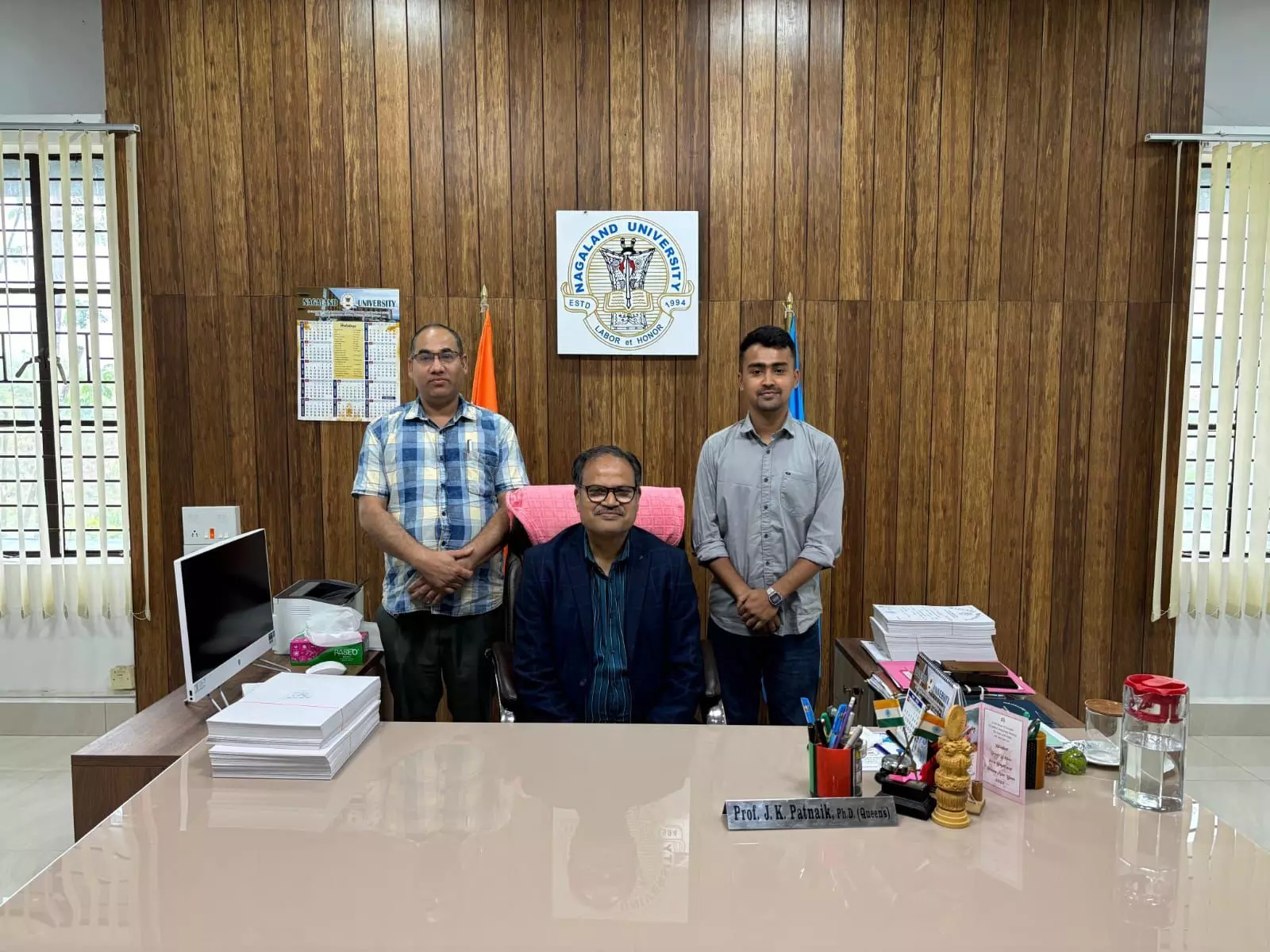Dipankar Hazarika from Nagaland varsity wins award for sustainable biopolymer-based hydrogel electrolytes
He is one of the 13 innovators across India selected for the grant
By Newsmeter Network
Dipankar Hazarika from Nagaland varsity wins award for sustainable biopolymer-based hydrogel electrolytes
Hyderabad: Dipankar Hazarika, a PhD research scholar from Nagaland University, has been awarded the prestigious Energy Innovation Fellowship Grant by the Royal Norwegian Embassy in New Delhi. He was recognised for the research on sustainable biopolymer-based hydrogel electrolytes as a replacement for harmful conventional liquid-based electrolytes.
He is one of the 13 innovators across India selected for the grant, which aims to accelerate innovations in energy storage technologies.
The fellowship is part of a collaborative effort involving Innovation Norway, NITI Aayog, The Energy and Resources Institute (TERI) and Atal Incubation Centres (AICs). It is hosted regionally for North-East India by AIC-SMUTBI (Sikkim Manipal University Technology Business Incubation), led by its CEO, Prof Tej Chingtham.
The research focus is on sustainable hydrogel electrolytes
Hazarika’s research focuses on sustainable biopolymer-based hydrogel electrolytes for next-generation solid-state energy storage. His innovation is designed to enhance flexible, wearable and sustainable electronic devices and contribute to India’s clean energy goals.
The project is supervised by Dr Nurul Alam Choudhury, assistant professor, Department of Chemistry, Nagaland University. Speaking about the innovation, Dr Choudhury stated, “Dipankar’s achievement is a proud moment for our laboratory and the university. His research shows promise in solving real-world energy challenges with sustainable approaches.”
How does the innovation work?
The hydrogel electrolyte, made from chitosan and a non-toxic ionic crosslinker like sodium carbonate, provides benefits such as:
- Leak-proof and non-flammable properties
- Biodegradability and non-toxicity
- Cost-effectiveness and scalability
- High ionic conductivity of 7.89 mScm-1
- Electrochemical stability up to 2.32V
- Lab-Scale Validation and Patent Filing
Hazarika’s innovation has already undergone laboratory-scale validation, achieving a cycle life of 51,500 cycles at 2 mAcm-2 in an all-solid-state supercapacitor. An Indian patent has been filed to secure the technology.
His research was recently published in the Journal of Power Sources, titled ‘An ionically cross-linked chitosan hydrogel membrane electrolyte for long-lived electrical double layer capacitors.’ Co-authors include Duangailung Kamei, Nuphizo Shijoh and Nurul Alam Choudhury.
Fellowship to boost technology scaling
As part of the fellowship, Hazarika will receive mentorship from IIT Madras’ Energy Consortium, led by Dr Nikhil Tambe, CEO of the consortium. The program will focus on technology readiness, product translation and real-world deployment.
Expressing his gratitude, Hazarika said, “This fellowship will significantly strengthen my research by providing access to expert mentorship and opportunities for industry linkage. I believe it will help translate my research into a product that contributes to sustainable energy solutions.” He added that the next step involves real-world performance testing and seeking industry collaborations for scaling up the product.
Local impact and community development
Hazarika’s innovation aligns with India’s goal of achieving net-zero emissions by 2070, with a focus on community-based energy solutions. His work aims to enhance energy access, resilience and sustainability in rural areas.
Congratulating him, Prof Jagadish K Patnaik, vice-chancellor of Nagaland University, remarked, “This milestone reflects the growing research excellence at Nagaland University and inspires others to pursue impactful science.”
Prof Tej Chingtham, CEO of AIC-SMUTBI, also emphasised the significance of such community-driven research: “This collaboration empowers local start-ups working on clean energy solutions, and we look forward to continued cooperation in driving sustainable impact together.”
Addressing gaps in electrolyte research
Dr Choudhury highlighted the need for innovation in electrolyte materials in energy storage devices, which are often overshadowed by electrode research. He explained, “While electrolytes are just as critical, they receive less attention due to their complexity and lower visibility in performance metrics.”
The team’s research aims to fill this gap with quasi-solid hydrogel electrolytes—a safer, biodegradable alternative to conventional liquid-based electrolytes known for their leakage, toxicity and flammability.
Moving forward, Hazarika plans to conduct performance testing under real-world conditions and explore industry collaborations for market-scale deployment. His innovation is poised to support India’s energy transition by providing sustainable, scalable solutions for community-level energy storage.